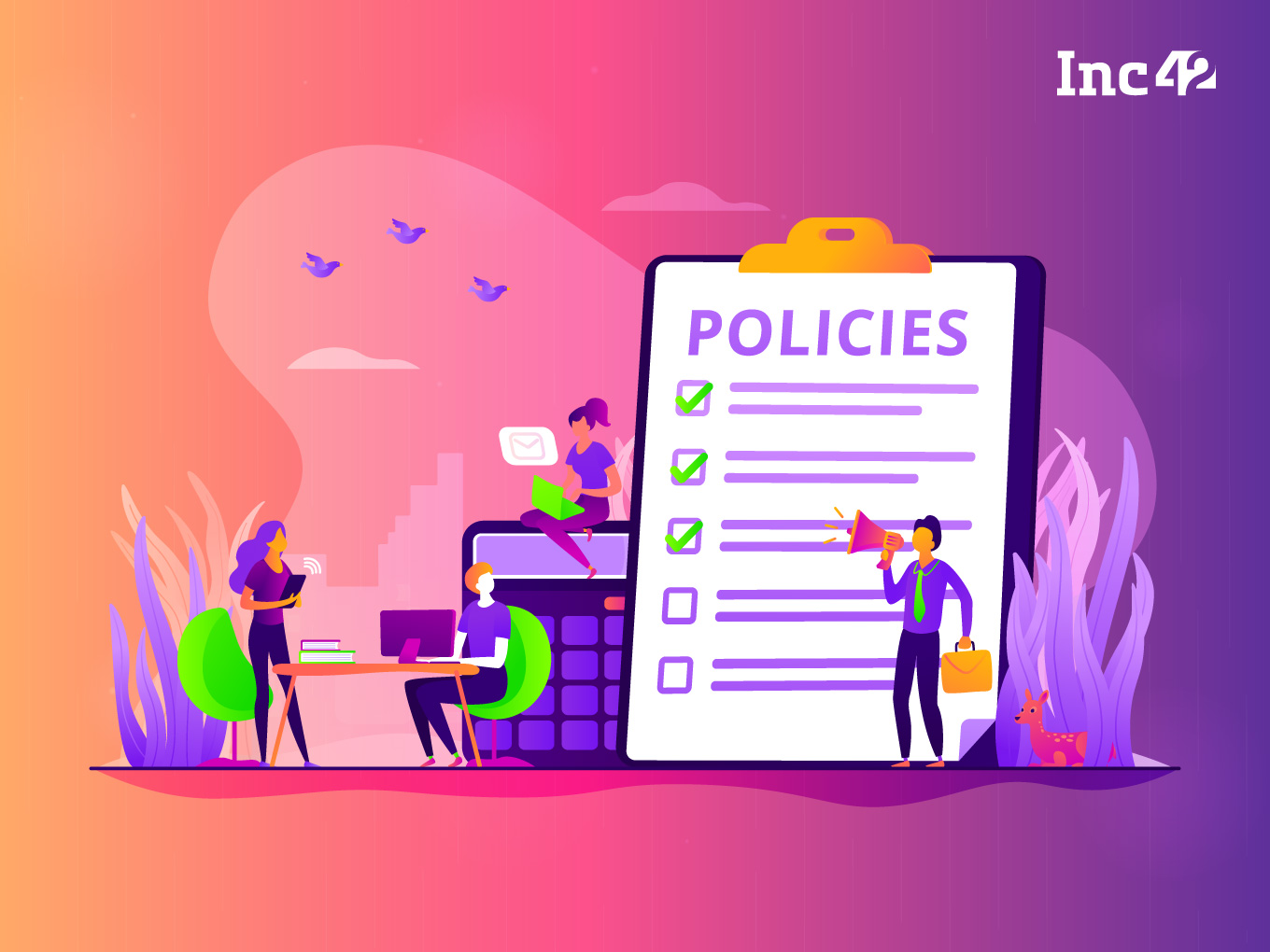SUMMARY
SEBI, in another amendment to its AIF Regulations this year, incorporates some of the long-standing demands of AIFs
With the new amendment in place, Category I AIFs are now allowed to invest in NBFCs and gold loan companies
Along with the new code of conduct for AIFs, fund managers and investment committee members, a similar code of conduct is needed for investors, say stakeholders
The Securities and Exchange Board of India (SEBI) recently announced the second amendment to SEBI (Alternative Investment Funds) Regulations, 2021, meeting some of the long-pending demands of VCs, startups and fund managers. From tweaking the definitions of venture capital undertakings and startups to introducing a new code of conduct for fund managers, the capital market regulator has come up with a slew of measures to bring in more clarity, transparency and accountability in the startup investment culture, with the focus on alternative investment funds (AIFs) and their operations.
Most startup stakeholders have welcomed SEBI’s move, especially as the 2021 amendment brings some much-needed clarity to the ecosystem. Anup Jain, the managing partner of Orios Venture Partners, told Inc42, “Alignment in definitions across SEBI and DPIIT (Department for Promotion of Industry and Internal Trade) is a welcome move and a long-standing demand of the Indian Private Equity and Venture Capital Association (IVCA) as well.”
The second amendment will further impact Category I and II AIFs with SEBI relaxing certain restrictions on their investments and also putting fresh restrictions on AIFs regarding concentrated funding in startups. But will these hinder fund managers or affect startup funding at a time when the onslaught of the Covid-19 pandemic has slowed down most businesses? Inc42 takes a deep dive into the latest changes, their possible impact and what the ecosystem thinks about the new rules.
SEBI Updates The Definition Of Startups In Sync With DPIIT
A ‘startup’ means a private limited company or a limited liability partnership, which fulfils the criteria for a startup as specified by DPIIT, Ministry of Commerce and Industry, Government of India, vide notification No. G.S.R. 127(E) dated February 19, 2019, or such other policy of the central government issued in this regard from time to time, states SEBI(AIF)(Second Amendment) Regulations, 2021.
To put things in context, SEBI (AIF) Regulations, 2012, did not define startups separately. So far, ‘startups’ have been defined differently by different arms of the Indian government. This lack of clarity has created multiple issues and unnecessarily increased the compliance cost, says Siddarth Pai, founding partner of 3One4 Capital.
According to Pai, one of the problems often noted in Indian regulations is that each Act has its own definition of a particular term, which leads to multiplicity in terms of compliance and also increases complexity. Take, for example, a startup raising money. It has to get a valuation report from a merchant banker for income tax filings, another report for the private placement under the Companies Act, and yet another report by a merchant banker or a CA with 10 years’ experience for FEMA (Foreign Exchange Management Act). It is one company raising one round of funding, but to do so requires so many different reports because all those government entities have different rules. The latest definition (by SEBI) meets the modified definition that DPIIT made earlier, but SEBI did not have it until now.
“The latest amendment will actually rationalise the definition of startup across various Acts. And this will minimise the compliance costs for everyone,” says Pai.
Anirudh A Damani, the managing partner of Artha Venture Fund, concurs. “The alignment of startup definitions across DPIIT and SEBI was desperately required. Many companies (especially those in fintech) are kept outside the scope of Category I venture capital funds even though fintech has become a focal area for investors in recent years. The definition of startups should be in sync with the times, and SEBI has vastly relieved the entire ecosystem with this critical change.”
Category I AIFs Can Invest In NBFCs
According to SEBI (AIF) Regulations, 2012, a venture capital undertaking (VCU) was defined as a domestic company
- which is not listed on a recognised stock exchange in India at the time of investment
- which is engaged in the business for providing services, production or manufacturing of article or things and does not include the following activities or sectors:
- non-banking financial companies, or NBFCs
- gold financing
- activities not permitted under the industrial policy of the Indian government
- any other activity which may be specified by SEBI in consultation with the government of India from time to time
The latest amendment, however, has simplified the definition of a VCU, stating:
A VCU means a domestic company, which is not listed on a recognised stock exchange at the time of making investments
The restrictions imposed in terms of services and activities have been lifted, too, thus broadening the scope of VCUs. This means Category I AIFs are now allowed to invest in NBFCs. According to SEBI Regulations, Category I AIFs will now invest in investee companies, VCUs, special purpose vehicles (SPVs), limited liability partnerships or in units of other Category I AIFs operating in the same subcategory.
The term VCU was first defined in 2000 in the SEBI (Venture Capital Funds) Regulations, and the definition has not changed since then. As a result, VC funds could not invest in NBFCs, gold loans companies and other areas prohibited by the government or SEBI.
Pai of 3One4 Capital says that the previous restrictions almost inhibited Cat I AIFs and VC funds from investing in fintech companies. As most of the fintech companies are now regulated like NBFCs, with newer business models getting an NBFC wrapper (such as account aggregators, P2P lending and so on), it was a difficult situation. This lack of fintech access due to the VCU definition made the entire sector unattractive to fund managers.
“After sitting on various roundtables with government representatives and presenting a whitepaper to SEBI to convince them that Category I AIFs should also be able to invest in NBFCs,it is very heartening for me to see this come to fruition,” says Siddarth Pai
Restrictions Imposed On Concentrated Investments
In spite of the leeway stated above, SEBI has imposed certain restrictions on AIFs making bulk investments of their funds into a single company.
As per the latest amendment:
- Category I and II of AIFs cannot invest more than 25% of the investable funds in an investee company directly or through investment in the units of other AIFs.
- Category III of AIFs cannot invest more than 10% of the investable funds in an investee company directly or through investment in units of other AIFs.
Incidentally, this has already become a common practice among VCs, and AIFs to invest not more than 25% of their investable funds into one company. Commenting on this funding curb, Jain of Orios Venture says:
“Downstream VC funds have always kept investments diversified across multiple companies. This amendment is more for fund of funds where they may cross the investment barrier in a company if the same fund manager operates multiple AIFs through cross-holding. With the new amendment, SEBI has set the upper limit. Both direct and indirect routes combined should be no more than 25% in a single company.”
The amendment, which has immediately come into effect since its notification on May 5, 2021, does not have a sunset clause for AIFs that may have already invested more than 25% in a particular company, directly, indirectly, or via the combined.
Explaining this, Jain says, “Although there is not much clarity on this, the AIFs in question may have to meet the regulatory officials and seek some time for compliance. But I am not aware of such cases and I believe that the step is more foresighted.”
Damani of Artha Venture Fund says that capping the limit at 25% per investment for Cat I and II funds is a positive move to ensure that the growing investor interest in these sophisticated asset classes is protected. The last thing that the ecosystem needs is a fund that overinvests in one startup, leading to a loss of principal for its investors.
“Our fund does not allocate beyond 10% per investment (including follow-on rounds). Therefore, we are not affected by this change. On the other hand, it validates our strategy that a portfolio should increase its concentration in a specific investment through follow-on rounds but only to a limit that does not make the entire portfolio lopsided.” — Anirudh Damani, Artha Venture Fund
Missing: Similar To AIFs, A Code Of Conduct For Investors Is Needed
The latest amendment has also introduced a code of conduct for AIFs, fund managers, members of investment committees, trustees, trustee companies and directors of each trustee company under the Fourth Schedule of SEBI (Alternative Investment Funds) Regulations, 2012.
However, this latest code of conduct for AIFs, fund managers and members of investment committees (of AIFs) has put them in a tight spot, says Pai. If something goes wrong with an investment, the limited partners (LPs) who have invested in that fund can hold them liable, at least technically.
Agreeing that the code of conduct would bring more transparency and accountability, Jain of Orios Venture says that a similar code of conduct should have been defined for LPs. Many a time, investors do not release the funds they commit initially. If multiple investors start to default, this may force the AIF to shut down, affecting the interest of compliant investors.
“So, like the code of conduct introduced for AIFs, fund managers and investment committee members, SEBI should have defined a code of conduct for investors or LPs,” he concludes.



























